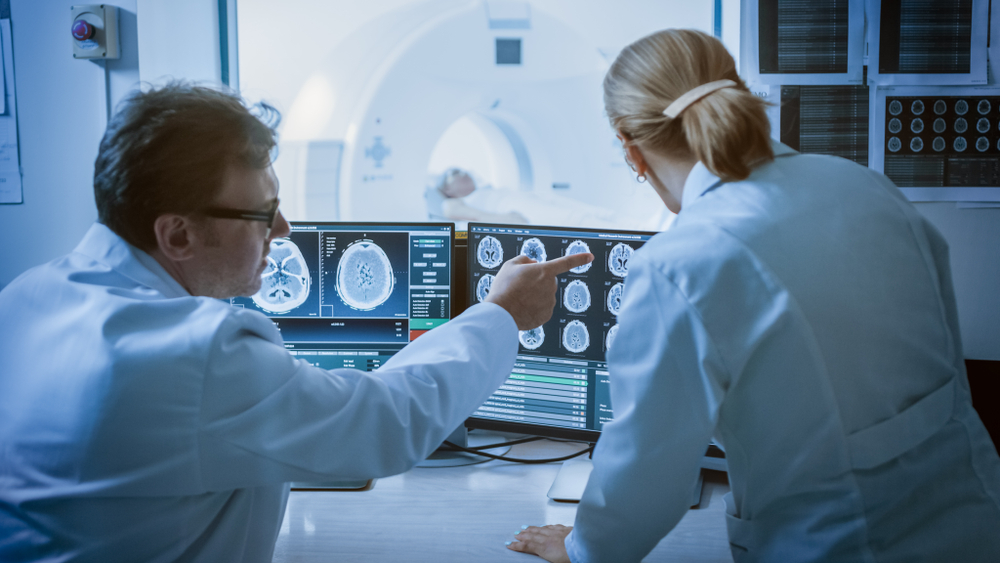
Radiology
MRI
Magnetic Resonance Imaging (MRI)
MRI uses a powerful magnetic field, radio waves, and computers to produce detailed images of the body’s internal structures. It’s a safe way for doctors to get an inside look at the body’s bones, organs, and tissues – without using radiation. It may be used to help diagnose or monitor treatment for a variety of conditions in the chest, abdomen, and pelvis. It’s particularly useful for evaluating soft tissues like ligaments and tendons, as well as the spinal cord and brain. MRI also is a safe way to monitor pregnant patients and their babies.
MRI Studies Offered:
Common MRI exams include Neurological, Musculoskeletal, MR Enterography, MR Angiography, Prostate MRI, and Breast MRI
Claustrophobic?
Learn more about the latest Virtual Open MRI technology for those patients that get uncomfortable and struggle during a traditional MRI scan.
Frequently Asked Questions
During an MRI scan, you’ll lie comfortably on your back on a table that is moved inside of a large magnet. A piece of equipment called a “coil,” which sends and receives radio frequency waves, will be placed around the area of your body that’s being examined. During the scan, as with all MRI exams, you will hear various noises, ranging from a buzzing to a loud knocking. We’ll provide earplugs and/or headphones, or in some cases music, to help with the noise.
Because an MRI exam takes images (or “slices”) from various angles, several sets of images will be taken, each lasting from one to 10 minutes. It’s important to lie very still during each sequence in order to produce clear, diagnostic images.The total exam time can range from 30 to 60 minutes.
Depending on your symptoms or prior medical history, you may be given a contrast medium via IV, which can improve visibility for physicians. The technologist will explain this procedure to you if necessary.
Since you will be positioned within a large, very strong magnet, you must remove all loose metal objects. Doing so is important for your safety and the safety of our staff, and to ensure proper functioning of the equipment. You may be asked to change into a gown or scrubs unless you are wearing clothing that is metal-free. Please let us know ahead of time if any of the following applies to you:
- Cardiac Pacemaker
- Artificial heart valve prosthesis
- Eye Implants or metal ear implants
- Any metal implants activated electronically, magnetically, or mechanically
- Aneurysm clips
- Copper 7 IUD
- Penile implant
- Shrapnel or non-removed bullet
- Pregnancy
- Claustrophobia
- Any metal puncture(s) or fragment(s) in the eye
If fasting is necessary for your procedure, you’ll be instructed well in advance. Please arrive 30 minutes prior to the exam time in order to register.
Our results will be reported to your physician and your Patient Portal as soon as the case is read.
Visit our locations page for more information. Imaging modalities and associated studies vary by location. Please contact us to schedule your visit at a convenient location near you.
Request an appointment online or contact us at 716-631-2500.
Please check with your insurance plan to confirm that the procedure is covered. You may be responsible for all or a portion of the bill. Payment may be required at the time of service. For questions regarding insurance coverage, and/or billing please call (716) 631-2500.






